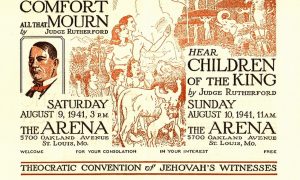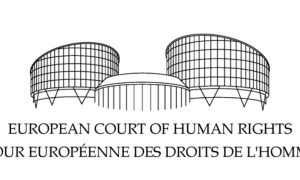Members of Jehovah’s Witnesses hope those of their faith who died during the Holocaust are remembered for remaining true to their beliefs.

Friday was International Holocaust Remembrance Day, a day during which the world mourns the millions who died at the hands of the Nazis. Some 6 million Jews were killed during World War II as part of a deliberate extermination attempt by the Nazis, who also killed millions of Romani, disabled people, Polish people, Russians and others deemed “inferior.”
Among the lesser-discussed victims of the Holocaust are Jehovah’s Witnesses. Aaron Purvis, a spokesman for the church, said there were about 35,000 Witnesses in Germany and Nazi-occupied countries at the time. Of those, 4,200 were sent to concentration camps, 1,600 died in those camps, 548 of whom were executed, he said.
Jehovah’s Witnesses have Kingdom Halls in Jacksonville, Beardstown and Springfield.
While other targets of the Holocaust were persecuted because of the circumstances of their birth or politics, Witnesses “were the only group the Third Reich persecuted based on religious beliefs alone,” Purvis said. Members of the church were targeted for being apolitical, because what the Bible taught ran counter to Hitler’s ideology.
For example, Witnesses would not reply “Heil Hitler” to any Nazis who said it to them, because they only considered Jesus, not Hitler, to be their leader. Instead, Purvis said, they responded with “guten tag.”
“That was such an act of courage and, really, one of great humanity,” he said, “to let everyone know that we were in disagreement with what was happening. We wouldn’t take part in the racist and violent acts because the Bible teaches that God is not partial. He does not care what a person’s nationality is, or the shade of their skin.”
Witnesses also refused to join the German army, Purvis said, and published literature warning of the Nazis in 1929, four years before Hitler came to power.
As the only group targeted by the Nazis for their religious beliefs alone, Witnesses had the opportunity to renounce their faith to escape harm, though not many did. According to the U.S. Holocaust Memorial Museum, “of the 25,000 to 30,000 Germans who in 1933 were Jehovah’s Witnesses, an estimated 20,000 remained active through the Nazi period.” The rest gave up their religion, fled the country or kept their faith secret.
Purvis said the Witnesses who were killed during the Holocaust should be remembered because “throughout the pages of history, there have been individuals that have made a stand for what is right, and they have paid with their lives. Those individuals should be remembered because that type of courage (is) hard to find in the environment we live in today.”
He said he hopes they will be remembered as being “firm in their determination not to be influenced by the evil force of Hitler and the Nazi regime” and as “people who stuck to their Bible principles.”





